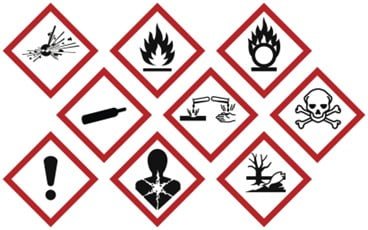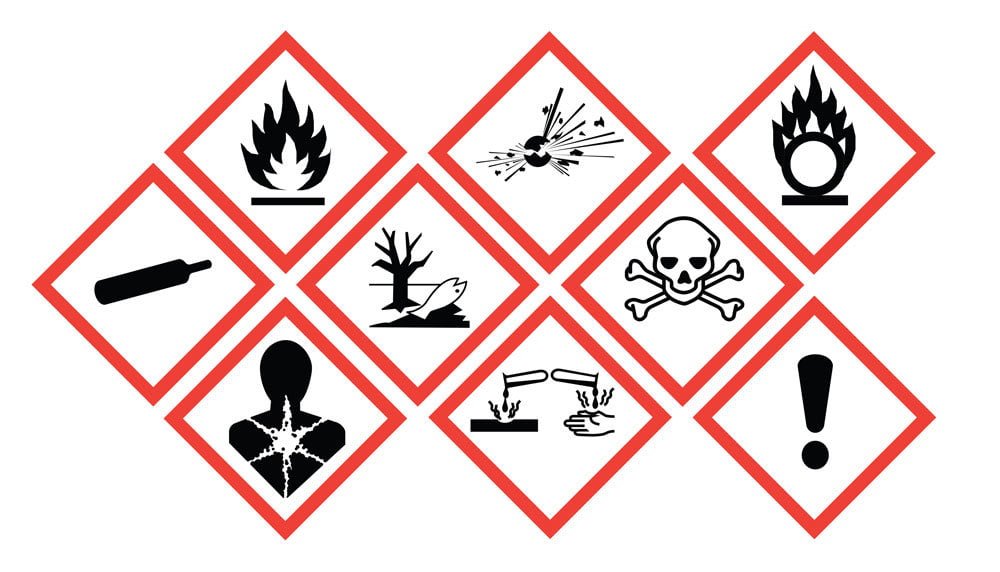Chemical Regulatory Specialist
Phone +358 10 504 5860
satu.salomaki@chementors.eu
Finnish | English
Safety data sheets (SDSs, formerly material safety data sheets or MSDSs) have been a widely accepted and effective method to convey safety information on substances and mixtures to users in the supply chain.
We provide a complete package of safety data sheet (SDS) services for companies around the world to ensure that only compliant SDSs are in circulation.
Since 2012, the Chementors team has newly generated, updated, and translated more than 10,000 safety data sheets in about 40 languages for customers around the world. As our one-stop service goal, we provide a complete package of SDS (MSDS) services to serve the various needs of clients which include:
Our Safety data sheets are:
With daily experience in safety data sheets since 2012, you can trust Chementors to handle all your SDS needs.
When manufacturing or placing a substance or mixture into a market, under different country-specific GHS regulations, duty holders are required to prepare and provide a compliant safety data sheet (formerly material safety data sheet) following the local regulation to downstream users in the supply chain.
In general, the document should provide information on:
Due to the importance of safety data sheets to the users and the environment, under EU Regulations, for instance, SDS (MSDS) documents must be prepared by a competent person. At Chementors, we are fully aware of this basic yet core factor. Our SDS experts, who have many years of experience in safety data sheet compilation, are here to assist you with generating compliant SDS documents from scratch.
When placing a substance or mixture into another marketplace, the original safety data sheet (SDS, formerly material safety data sheet or MSDS) must be translated:
In short, safety data sheet localization is never a word-to-word translation in terms of linguistics. Each country and region has its specific SDS requirements and standards, for example, hazard classification and labeling criteria, format and content, occupational exposure limit values, or special control rules and measures etc.
Therefore, a safety data sheet localization should cover not only the requirement of the official language(s) but, more importantly, the local regulations of the country of destination. The latter one is often neglected which makes the translated document non-compliant.
At Chementors, we provide high-quality translated safety data sheets in compliance with local regulations. We also make sure to apply correct phrases and appropriate terminology in each language with our SDS translation service. To date, more than 2500 SDS translations in 40 languages have been made by us.
Local regulations are usually amended after some years. Intrinsic hazard information of a chemical and the relevant risk management measure could also be changed or developed over time. Different factors including the above-mentioned make a safety data sheet (formerly material safety data sheet) seldom a one-time document.
Therefore, there is a need to frequently update the safety data sheet to maintain its compliance with the current version of the regulation and to provide the newly available safety information to target audiences in the supply chain.
Under certain countries and regions, such as the EU, it is a legal obligation to update SDS without delay if the updating scope is met.
Safety data sheet update is a common task that Chementors has been receiving from worldwide clients. Once receiving input from Clients, our specialist team will make an update accordingly.
Phone +358 10 504 5860
satu.salomaki@chementors.eu
Finnish | English
Phone | +358 44 099 6969 (only WhatsApp)
antti.aalto@chementors.eu
Finnish | English
Chementors
In most countries, it is a regulatory obligation to provide safety data sheets (formerly material data sheets) for all substances and mixtures that meet the criteria set out by the country where such substances or mixtures are manufactured or placed on the market.

For example, in the EU, these criteria are defined in Article 31(1) of EU REACH regulation (EC) 1907/2006:
To date, numerous regions and countries worldwide have adopted the classification and labeling rules of the Globally Harmonized System of Classification and Labelling of Chemicals (GHS) developed by the United Nations to generate and implement their own country-specific GHS regulations.

As defined in the UN GHS, a safety data sheet (formerly material safety data sheet or MSDS) is a document that “provides comprehensive information about a substance or mixture for use in workplace chemical control regulatory frameworks. Both employers and workers use it as a source of information about hazards, and to obtain advice on safety precautions.”
Information in the SDS is useful for companies in developing and implementing appropriate chemical safety programs to protect workers and the environment.
In addition, SDS also provides critical information for other audiences in the supply chain such as those involved with transporting activities of dangerous goods, emergency responders including poison centers and firefighters, waste operators, those involved in the professional use of pesticides, and consumers.
✔ Mostly follows a 16-section format which is internationally agreed
✔ Often required to be provided in an official language of the country where the substance or mixture is placed on the market unless otherwise specified
✔ Should be provided by the manufacturers, importers, or suppliers to transmit necessary and relevant safety information on specific uses of the target users
✔ Should be prepared by a competent person

ECHA inspected 2500 safety data sheets A recent EU-wide initiative by ECHA’s Enforcement Forum revealed that 35% of inspected safety data sheets (SDS) failed to

HAZARD PICTOGRAMS: what it is According to the Globally Harmonized System of Classification and Labelling of Chemicals (GHS) developed by the United Nations, a hazard